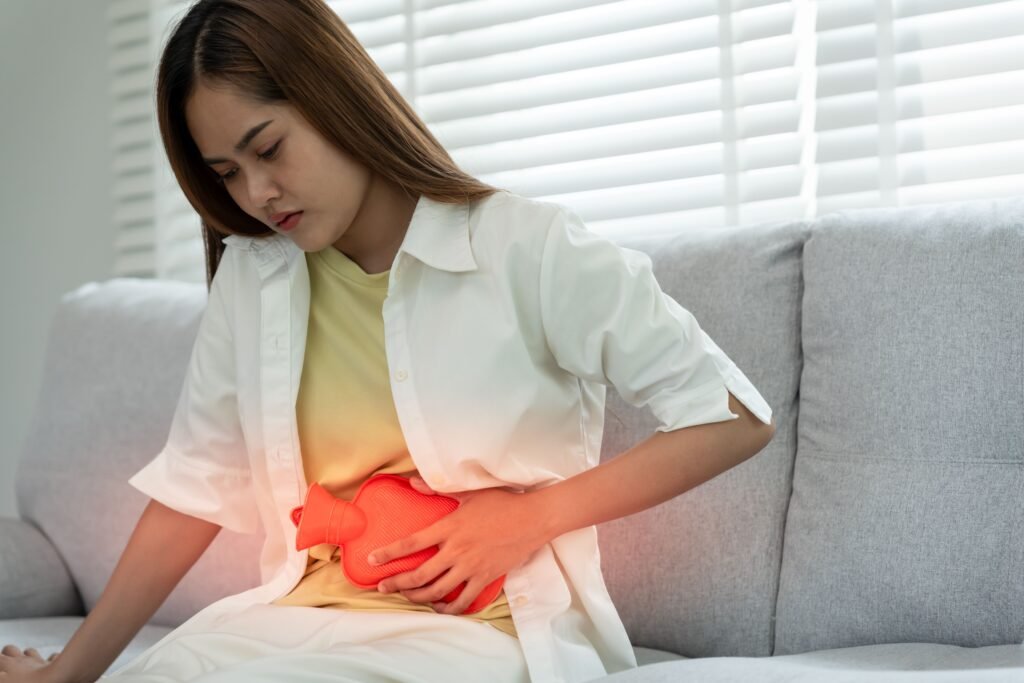Menstruation is a natural biological process experienced by women of reproductive age. However, for many women, periods are not just a monthly routine — they can bring along various physical and emotional challenges. A female menses problem can range from irregular cycles and heavy bleeding to severe cramps and mood changes, impacting daily life and overall well-being.
In this comprehensive guide, we will explore everything about female menses problems — their causes, symptoms, possible complications, and treatment options — and provide expert advice on maintaining menstrual health.
1. What is a Female Menses Problem?
The term female menses problem refers to any irregularity or discomfort related to the menstrual cycle. A typical menstrual cycle lasts between 21 to 35 days, with bleeding lasting around 3 to 7 days. Any significant deviation in cycle length, flow, or associated symptoms may indicate an underlying condition.
Common menstrual problems include:
- Dysmenorrhea – Painful periods with cramps.
- Menorrhagia – Excessive or prolonged menstrual bleeding.
- Oligomenorrhea – Infrequent periods.
- Amenorrhea – Complete absence of menstruation.
- Premenstrual Syndrome (PMS) – Emotional and physical symptoms before menstruation.
- Irregular cycles – Unpredictable timing or duration of periods.
2. Causes of Female Menses Problems
Several factors can lead to menstrual irregularities. Common causes include:
A. Hormonal Imbalances
Fluctuations in estrogen and progesterone levels can disrupt the menstrual cycle. This is common during puberty, after childbirth, and during perimenopause.
B. Polycystic Ovary Syndrome (PCOS)
PCOS is a hormonal disorder that often leads to irregular or absent periods, excessive hair growth, and weight gain.
C. Thyroid Disorders
Both hypothyroidism (underactive thyroid) and hyperthyroidism (overactive thyroid) can impact menstrual cycles.
D. Uterine Fibroids
Non-cancerous growths in the uterus can cause heavy bleeding, pelvic pain, and prolonged periods.
E. Endometriosis
A condition where the tissue that lines the uterus grows outside it, leading to severe cramps and infertility issues.
F. Lifestyle Factors
Stress, extreme exercise, poor nutrition, and sudden weight changes can affect menstrual cycles.
3. Symptoms of Female Menses Problems
A female menses problem may present with a variety of symptoms:
- Severe abdominal cramps.
- Heavy or prolonged bleeding.
- Light or missed periods.
- Spotting between periods.
- Mood swings, anxiety, or depression.
- Breast tenderness.
- Fatigue and weakness.
It is important to track these symptoms to help healthcare providers make an accurate diagnosis.
4. When to See a Doctor
Seek medical help if you experience:
- Periods lasting more than 7 days.
- Bleeding between cycles.
- Extremely painful cramps that affect daily activities.
- Absence of periods for 3 months (without pregnancy).
- Heavy bleeding with clots.
5. Diagnosis of Female Menses Problems
Doctors may use the following tests to determine the cause:
- Medical history and physical examination.
- Pelvic ultrasound to detect fibroids or cysts.
- Hormone level testing for thyroid, estrogen, and progesterone.
- Pap smear to check cervical health.
- Laparoscopy in cases of suspected endometriosis.
6. Treatment Options for Female Menses Problems
Treatment depends on the underlying cause. Common approaches include:
A. Medications
- Pain relievers (Ibuprofen, Naproxen).
- Hormonal birth control pills to regulate cycles.
- Hormone therapy for thyroid disorders.
B. Lifestyle Modifications
- Maintaining a balanced diet.
- Regular physical activity.
- Stress management techniques like yoga and meditation.
C. Surgical Interventions
In severe cases, procedures like hysteroscopy, laparoscopy, or myomectomy may be required.
7. Home Remedies for Managing Menstrual Problems
- Apply a heating pad to the lower abdomen to reduce cramps.
- Drink herbal teas like ginger or chamomile.
- Stay hydrated to reduce bloating.
- Incorporate foods rich in iron (spinach, lentils) to prevent anemia from heavy bleeding.
8. Complications of Untreated Female Menses Problems
Ignoring menstrual issues can lead to:
- Severe anemia.
- Infertility.
- Chronic pelvic pain.
- Worsening hormonal disorders.
Early diagnosis and treatment can prevent these complications.
9. Preventing Female Menses Problems
While not all menstrual problems are preventable, healthy lifestyle habits can minimize the risk:
- Maintain a healthy weight.
- Avoid smoking and excessive alcohol.
- Manage stress levels.
- Have regular gynecological check-ups.
10. Emotional and Mental Health Aspects
Menstrual problems are not just physical — they can have a strong emotional impact. Anxiety, mood swings, and depression are common among women dealing with chronic menstrual disorders. Seeking emotional support, joining women’s health groups, and practicing self-care can make a big difference.
Conclusion
A female menses problem should never be ignored. Understanding your menstrual cycle, recognizing abnormalities, and seeking timely medical attention can significantly improve your quality of life.
At Karthika Woman and Childcare in Bangalore, we provide expert care and comprehensive solutions for women’s reproductive health. Our experienced gynecologists and specialists work to diagnose and treat menstrual disorders with a compassionate and personalized approach.
📍 Contact Us:
Karthika Woman and Childcare
Bangalore, India
📞 Phone: +91 99728 99728
🌐 Website: karthikawomanandchildcare.in


